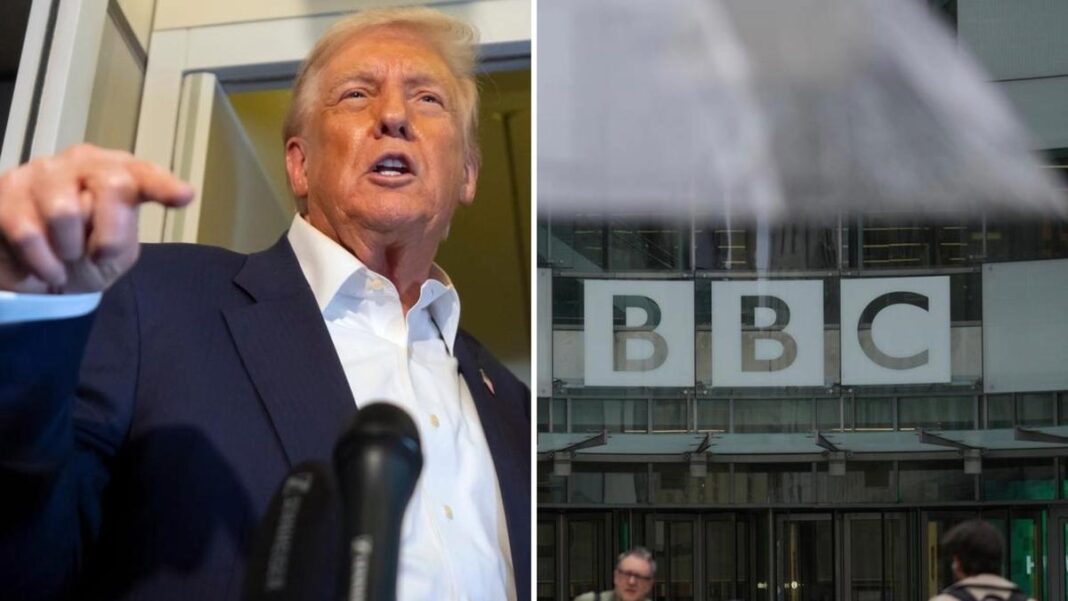Donald Trump Takes Legal Action Against the BBC Over Edited Documentary
Donald Trump has long been known for his combative approach towards media scrutiny, so it comes as little surprise that he is now pursuing legal action against the BBC. The former US President has accused the broadcaster of incorporating “malicious, disparaging” edits into a documentary produced by its Panorama program, which centered on the events of January 6, 2021.
The Controversial Documentary
The BBC’s Panorama aired a documentary that included an edited version of a speech Mr. Trump delivered on the day of the Capitol riots. This edited speech allegedly misrepresented his intentions, suggesting that he explicitly encouraged the violence that unfolded. The edited version altered his words in a manner that Trump argues not only mischaracterizes his message but also misleads the public.
Resignations Amidst Backlash
The fallout from this controversy led to significant fallout within the BBC itself. Tim Davie, the head of the BBC, and Deborah Turness, CEO of BBC News, both resigned following mounting pressure over the issue. This indicates the seriousness of the allegations and the internal strife it has caused within the organization.
Trump’s Legal Stance
In a public statement, Trump asserted that he had a “duty to take legal action” because he felt his speech had been “butchered.” Legal representatives for Trump have sent a letter to the BBC demanding a staggering $1.5 billion (£759 million) in damages unless the broadcaster issues a full retraction, along with an apology and compensation for the perceived harm caused.
During a recent Fox News appearance, Trump elaborated on his motivations, suggesting that the BBC had “defrauded the public” by misrepresenting his words. He insisted that the edits transformed what he described as a “beautiful” and “calming” speech into something “radical.”
The Editing Process
The specific edits in question have raised eyebrows, particularly because they allegedly changed the context of Trump’s original message. While the original speech contained words like “We’re going to walk down to the Capitol, and we’re going to cheer on our brave senators and congressmen and women,” the edited version presented him as saying something more incendiary by añadng phrases like “and I’ll be there with you. And we fight. We fight like hell.”
Internal Concerns at the BBC
The internal memo that surfaced recently, revealed by the Daily Telegraph, indicated that a former independent adviser had expressed deep concern over the edits, suggesting they unfairly implied that Trump instigated the riot. This revelation has put the BBC in a difficult position, raising questions about editorial integrity and the responsibility of news organizations to report accurately.
Response from the BBC
In the wake of the controversy, Samir Shah, the BBC chair, issued an apology for what he described as an “error of judgment.” However, the corporation has also responded to Trump’s claims by stating that they would address the letter from his legal team in due course, emphasizing their commitment to journalistic integrity and accountability.
Implications for Future Reporting
This incident has broader implications for how media organizations navigate the intricate landscape of reporting on politically charged events. With the upcoming US presidential election in November 2024, this controversy may lead to increased scrutiny of media representation and the biases that might affect reporting.
As the situation unfolds, it serves as a reminder of the contentious relationship between media, politics, and public perception—a dynamic that will likely be at the forefront as the election cycle heats up.



